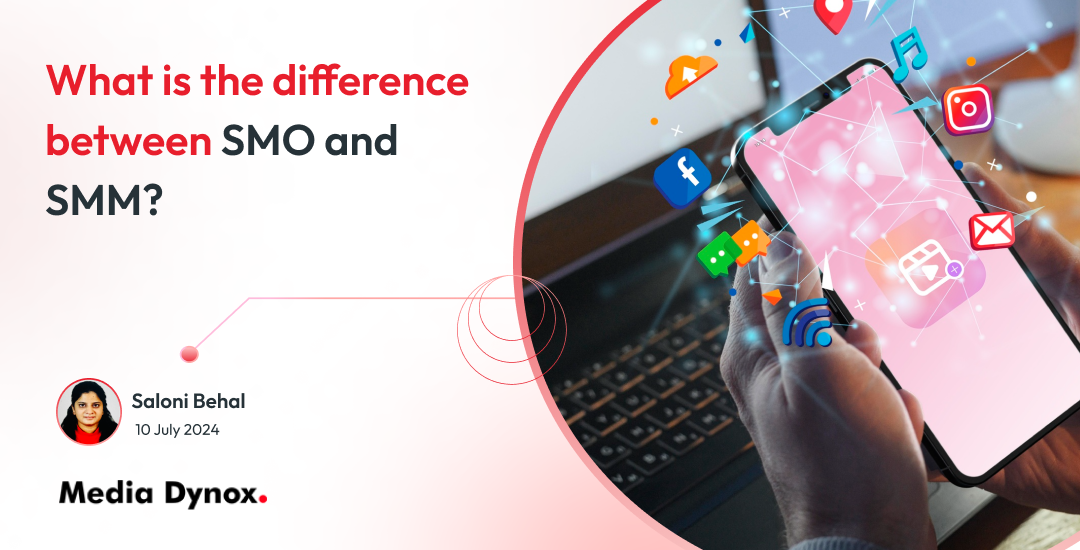
Engaging audience, promoting goods or services and building the brand’s online presence. Social media is no longer just a platform for people to connect overseas. It has now become an effective tool for marketing your business or brand online. Two main strategies that are generally used are Social Media Optimization SMO and SMM. Every renowned Digital Marketing company in Delhi understands the importance of utilizing social media to its full potential. Further, On the one hand, where these are closely related, they are also very different from each other on the other hand.
Social Media Optimization is the practice of optimizing your online presence and its content. It also helps to create brand awareness. Evidently, the main goal of SMO is to increase the visibility of your social media profiles and content organically.
Make sure your profile is complete, consistent and reflects your brand identity. This involves using a constant brand voice, updating contact information and utilizing high-quality images.
Create and share content that your audience can relate to. This includes using accurate keywords, hashtags and multimedia elements to raise engagement and reach.
Active interaction with your audience by responding to their comments, messages and mentions. Encouraging discussions and conversations that help you build good relationships and gain customer loyalty.
Integrating all marketing efforts with social media helps you create a cohesive strategy that elevates your overall marketing efforts.
Engagement rate, reach and click-through rates track these metrics to measure the effectiveness of your SMO efforts.
SMO concentrates on organic growth and building a strong community for your brand. Businesses can provide value through informative and engaging content.
Social Media Marketing, basically uses paid advertisements and sponsored content on social platforms to promote products or services, increase brand visibility and drive more conversions. Unlike SMO, SMM involves using paid advertising alternatives.
Crafting targeted campaigns based on the audience’s demographics, interests and behaviour of the targeted audience. Through this, your ads reach the right segment of people at the right time.
Campaign management includes monitoring and optimizing ad campaigns to increase ROI. Also, involves setting budgets, A/B testing ad creatives and adjusting targeting parameters for better performance.
Increasing visibility on organic posts through paid promotion can help increase reach and engagement beyond organic following.
Utilizing social media ads to generate leads and drive sales through them. In this, it offers incentives like discounts or free trials to encourage leads.
Measuring the success of SMM campaigns through metrics such as cost per click (CPC), conversion rate, and return on ad spend (ROAS). Analyzing these metrics helps optimize future campaigns for better results.
SMM provides businesses with a targeted approach to reaching potential customers through paid channels, allowing for precise control over messaging and audience targeting.
While both SMO and SMM target enhancing a brand’s presence on social media, they may have different approaches and objectives significantly.
SMO’s full concentration remains on organic growth through optimizing content and engaging the community, while SMM focuses on paid advertisements.
SMO primarily relies on organic efforts, making it cost-effective but requiring more time to build traction. SMM involves paid advertising, which offers immediate visibility but requires a budget.
Where SMO's vision is to build a loyal community and enhance brand reputation. SMM on the other hand, aims at achieving measurable outcomes such as lead generation and increased ROI.
SMO builds relationships with an existing audience and encourages organic sharing. SMM specifically targets the accurate segment of the audience through paid placements to maximize reach and engagement.
Both Social media optimization and social media marketing are integral parts of a comprehensive strategy. So, it is very important to understand their differences to utilize them in the best way possible. SMO fosters organic growth and community building, While SMM takes advantage of paid advertising to achieve specific marketing goals. By combining both of these approaches strategically, businesses can increase their social impact and gain sustainable growth in this competitive landscape.